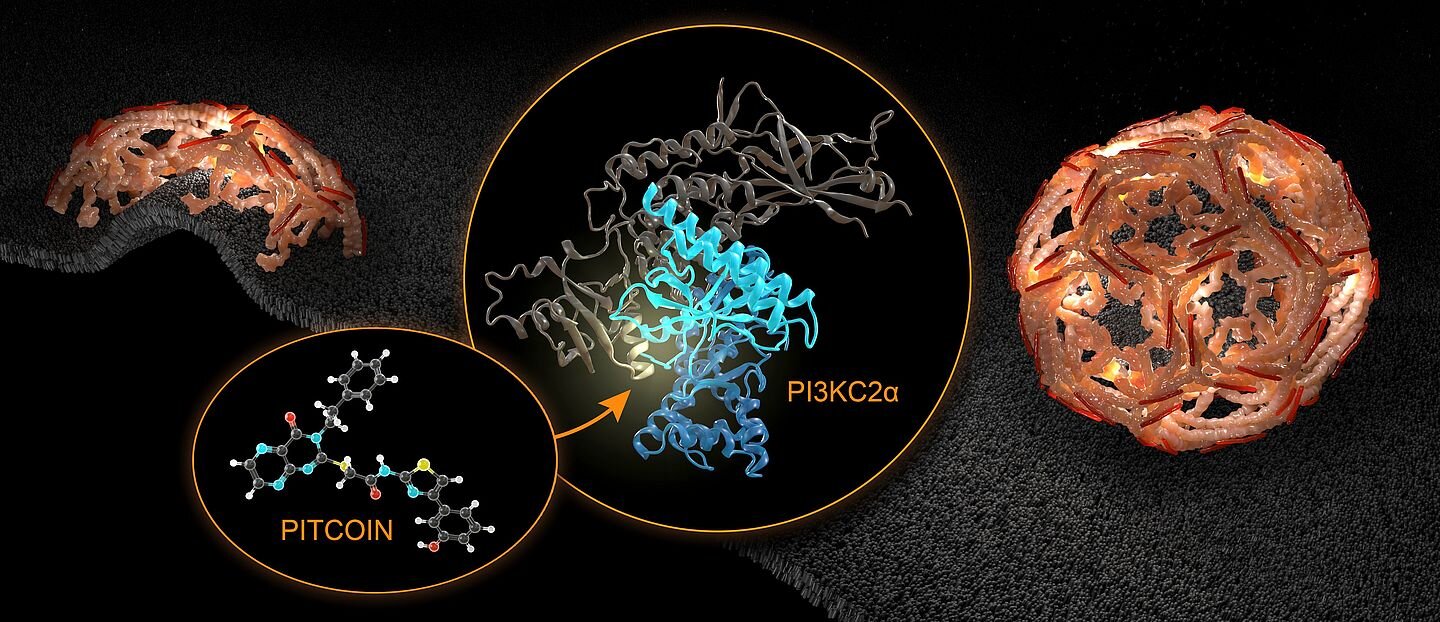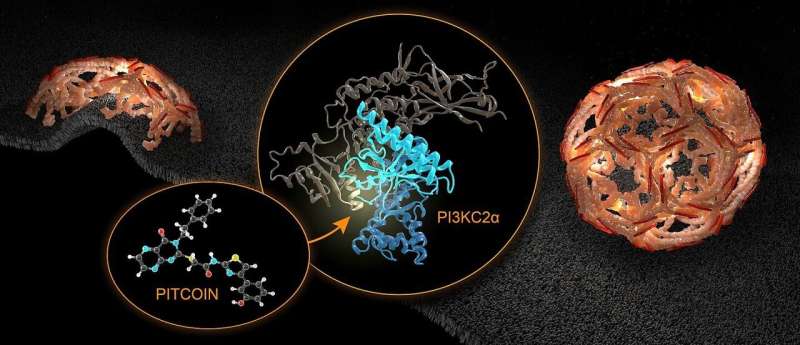

The lipid kinase PI3KC2a is a potential pharmacological target for the treatment of thrombosis and, possibly, cancer. Researchers from the Leibniz-Forschungsinstitut für Molekulare Pharmakologie (FMP) have now identified a potent inhibitor of its activity that serves as a lead for further drug development.
Thrombosis including venous thrombosis and pulmonary embolism with an annual incidence of about 1 in 1,000 adults is a major threat for human health, in particular during old age. To counteract blood clotting, patients take blood thinning medication, which, however, often display severe side-effects such as bleeding (hemorrhage).
The lipid kinase PI3KC2a has been found to potently modulate thrombosis by regulating the function of blood platelets that are at the heart of initiating the blood clotting mechanism—for example, in response to high blood pressure or atherosclerosis. PI3KC2a, thus, is a powerful target for the development of novel anti-thrombotic drugs. However, so far no specific inhibitor of PI3KC2a has been described.
Dr. Wen-Ting Lo from the research group of Prof. Volker Haucke in close collaboration with medicinal chemist Dr. Marc Nazaré and his team, researchers from Toulouse, and the Screening Unit of the FMP (led by Dr. Jens Peter von Kries) now has developed and characterized the first PI3KC2a inhibitors.
As a result of extensive chemical optimization studies, the researchers succeeded in tweaking the selectivity of the inhibitors over the entire kinome, in particular against all other lipid kinases. One of these compounds termed PITCOIN3 displays particularly striking selectivity for PI3KC2a and is shown to potently impair platelet membrane remodeling and thrombus formation.
“This breakthrough development has only been possible because of our earlier structural studies on PI3KC2a,” comments Dr. Lo, the first author of the study just published in Nature Chemical Biology.
Dr. Nazaré adds that “the unexpected non-classical binding mode of the PITCOIN inhibitors reveals a promising new blueprint for the development of related drug leads. The PITCOINs may also be important tools to help other researchers to probe and uncover unknown functions of PI3KC2a.”
“The antithrombotic effect of the PITCOIN inhibitors counteracts thrombosis via effects on the internal membrane structure of platelets, not by blocking their activation, thereby opening an improved therapeutic window,” says Haucke.
The reported findings could open new possibilities for the treatment of thrombosis and cancer, as demonstrated by the ability of PITCOINs to interfere with the migration of breast cancer cells in vitro.
Class II PI3K lipid kinase: Structure of novel antithrombotic drug target resolved
Marc Nazaré, Development of selective inhibitors of phosphatidylinositol 3-kinase C2α, Nature Chemical Biology (2022). DOI: 10.1038/s41589-022-01118-z
Provided by
Leibniz-Forschungsinstitut für Molekulare Pharmakologie
Citation:
Inhibitor of lipid kinase PI3KC2a identified as potential new treatment of thrombosis (2022, September 15)
retrieved 15 September 2022
from https://phys.org/news/2022-09-inhibitor-lipid-kinase-pi3kc2a-potential.html
This document is subject to copyright. Apart from any fair dealing for the purpose of private study or research, no
part may be reproduced without the written permission. The content is provided for information purposes only.